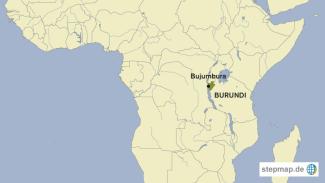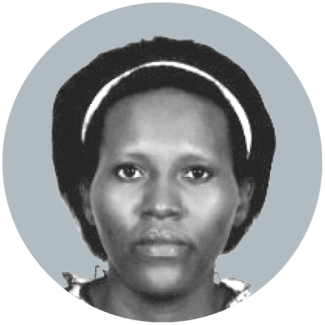Ethnic strife
An elusive truth

The violence between Hutus and Tutsis, Burundi’s main ethnic groups, is rooted in centuries of conflict. It flared up when Burundi became independent in 1962, and did so again in 1972, 1988 and 1993. So far the TRC, led by Pierre Claver Ndayicariye, has exposed thousands of mass graves and tens of thousands of victims of ethnic fighting.
The TRC says that most of the dead in 1972 were Hutus – Burundi’s previously suppressed majority ethnic group. But Tutsi politicians say the TRC’s findings are one-sided and that the violence was mutual. A Tutsi human rights defender says the discovery of mass graves across Burundi does not necessarily incriminate Tutsis in all cases.
Tutsis say the TRC is biased due to its composition. Most TRC members belong to the Hutu-dominated ruling political party, the CNDD-FDD (National Council for the Defence of Democracy). In some cases panel members represent civil society groups affiliated with the country’s former president, Pierre Nkurunziza, who was considered a Hutu.
Adding fuel to the fire is the fact that TRC head Ndayicariye previously led Burundi’s electoral commission during the 2015 presidential elections, which Nkurunziza won. “Some people rightly think that Nkurunziza promoted Ndayicariye to head the TRC as a reward for the election outcome,” says Charles Nditije, former president of the opposition party Union for National Progress. “This is a real insult to the victims of the violence linked to that election.”
Other Tutsis accuse the TRC of being too selective about the crimes it chooses to investigate. They want the TRC to look into the violence in 1993 sparked by the assassination of the country’s first democratically elected president. Most of the victims of that violence were Tutsis. TRC head Ndayicariye says he is willing to investigate those crimes but has not set a timetable for doing so.
Other aspects of the TRC’s work agenda are also controversial. At a meeting of TRC staff in July 2021, the panel agreed to focus on “crimes against humanity” during an outbreak of violence in 1972. Tutsi leaders objected to the TRC’s self-assigned task. “The TRC has no latitude to define what it calls crimes against humanity,” a Tutsi politician said: “UN experts should make that determination.” But Emmanuel Sinzohagera, president of the Burundian Senate, countered that each country can decide for itself what it considers human rights violations.
More recently, the TRC has extended its inquiry to include the role of former colonial powers in creating its ethnic woes. From 1890, Germany colonised Burundi, which became part of German East Africa. Germany added a military presence there in 1896. After World War One, Belgium ruled Burundi until the latter became independent in 1962. According to historians, both colonial powers had favoured Tutsis for administrative posts and discriminated against Hutus.
This solidified a caste system in which a wealthy Tutsi minority dominated a poor Hutu majority. “The colonisers had a hand in the crises that have plunged Burundi into mourning,” the TRC says. In 2020, the Burundian parliament demanded € 36 billion in compensation and an official apology from the former colonisers for crimes committed by their forebears between 1896 and 1962.
Mireille Kanyange is a journalist for Radio Isanganiro in Burundi.
mika.kanyange@gmail.com








